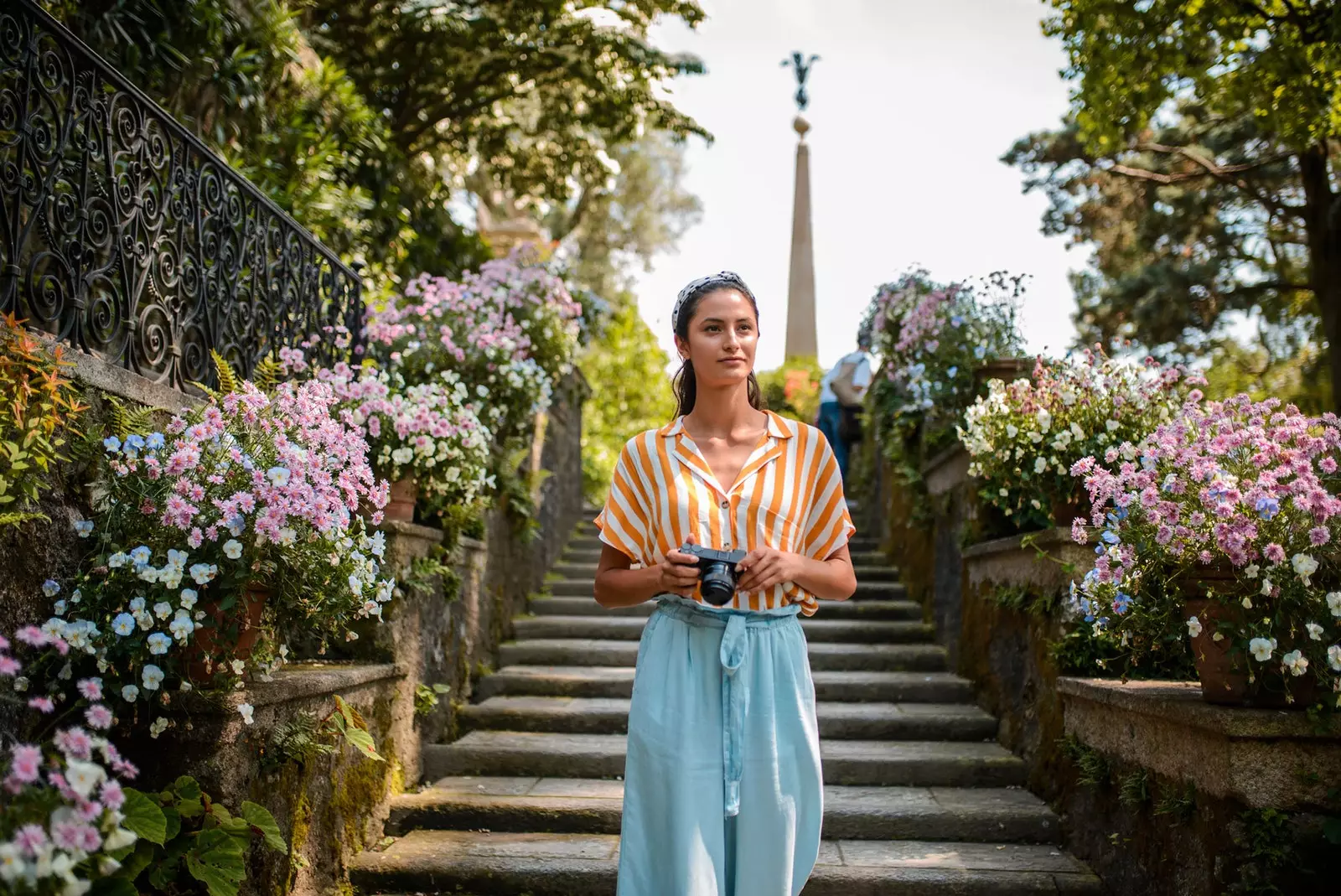
If you don't travel, are you nobody?
"I don't like traveling at all, even if it's frowned upon" , confesses Thalía, singer. “There are places, like Oslo, that I would like to visit, but I am so lazy and I have everything so close at hand around me, that I think: ‘What for?’”, reflects Juan, a mechanic.
“Perhaps I have become accustomed to a life of comfort and I do not have 'travelling' concerns, like many of you. Thus, sometimes I feel somewhat 'bad' or 'inferior' when my friends tell me they are traveling out of the country. But on the other hand, I still feel good in my 'comfort zone,' ” he continues.
Yes, there are **people who don't like to travel**. They are by your side, they live among us. And yet, it seems that, from the concierge to the manager, from the one who cleans the hotel room to the one who pays for it, nobody stops touring the world.
remember : How many selfies with a monument behind have you counted lately? How many have you uploaded yourself? How many influencers have you seen posing on a beach in the last week? How many of your friends have you seen imitating these influencers?
"I never liked to travel (although, wanting to be a worthy representative of my generation, I pretended I did)," writes Sabina Urraca, a writer, in her story A Whole Goat. In that pretending, in that having to lie to be accepted by the group, is the crux of this article. Because, let's be honest: nowadays, if you don't travel, you are nobody . You are completely out. You are a weirdo. Don't you know all the advantages it has? All the likes that the perfect photo generates on Instagram?
“New technologies have not only accelerated mobility and travel around the world; they have radically changed the way of doing tourism ”, Maximiliano Korstanje, director of the Center for Research in Tourism and Hospitality of the University of Palermo, in Argentina, explains to Traveler.es.
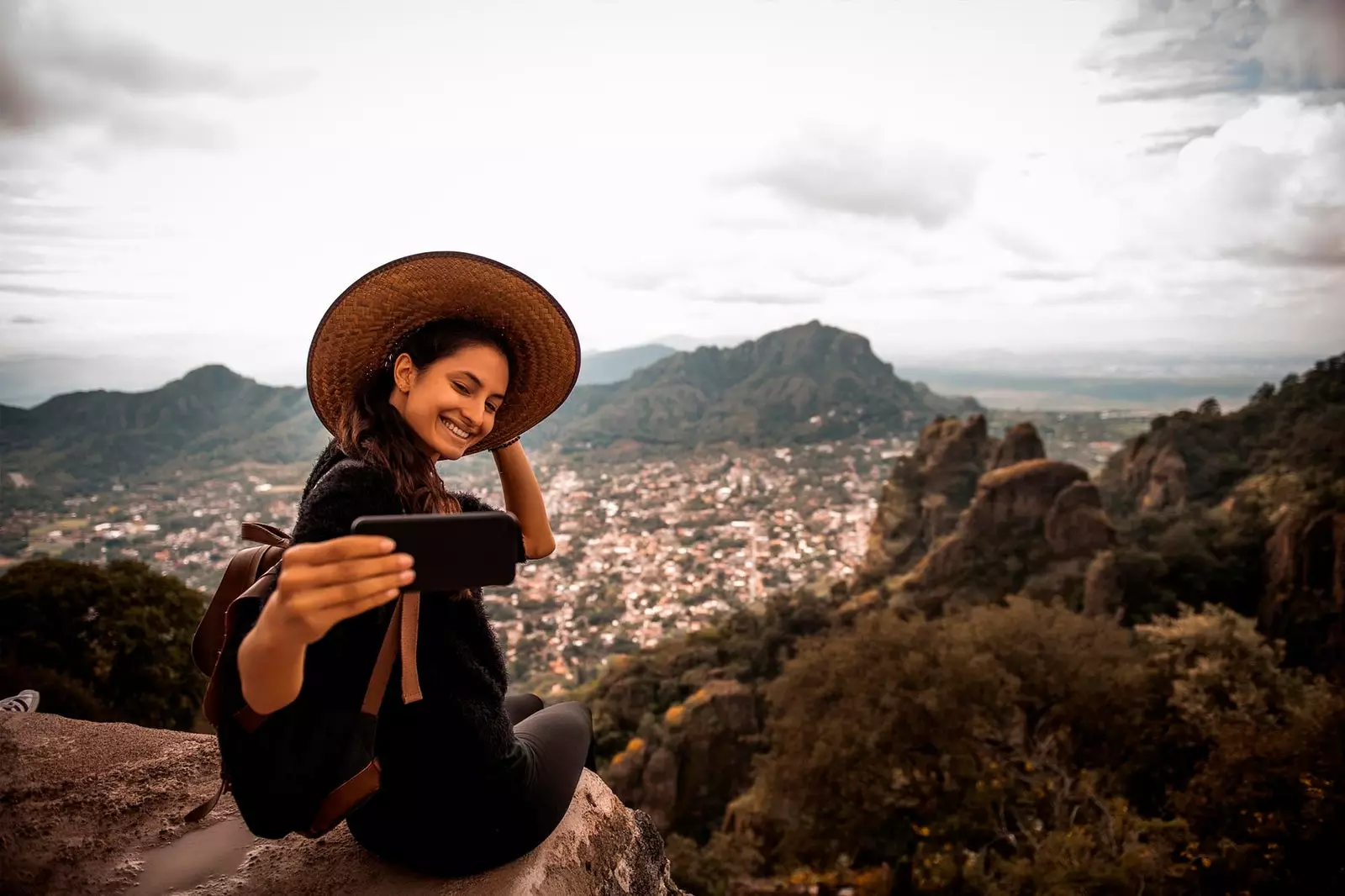
No one travels without their mobile anymore
“Tourism confers a privileged status to those who can dispose of it. There is talk of a new class, **the honimem viatores ('travelling man')**, which seeks to combine the need for discovery with the experience of having been there. Technology gradually transforms the way experiences are told. Our grandparents and parents traveled to exotic places to share their memories. Currently, tourists seek to consume unique experiences that can not only be narrated, but that remain forever in the mind of those who have experienced them”, says the expert.
IT'S NEVER ENOUGH
This desire to live experiences is one of the most commented on in the conversation that arises around the fact that traveling has recently become almost a cultural imperative: “If I travel to a distant place for tourism, I feel bad, I I feel absurd, I am anguished by everything I have to see and experience”, adds Urraca. For her part, Lidia, a communicator, says: “ It seems I never travel enough . That I have always seen fewer places than the rest and I have taken advantage of the opportunities less”.
And he continues: “I recognize that, sometimes, I think that, having lived in Central Europe for four years, I have not gone to all the places that I 'should' have gone, and that I have wasted a bit of time staying at home and watching Netflix. Let's not talk about leaving Europe, of course: it seems that if you haven't taken a selfie in Thailand you're not a proper wanderlust”.
“It could be due to **the self-demand we put on ourselves, being continuously bombarded by social networks with exotic (and false) images** of incredible and lonely paradises (which, really, are crowded if you take the photo a little more to the left ) ”, answers Manuel, a computer scientist.
Korstanje explains the phenomenon: “Anthropologically, we tend to copy the experiences that are positive for us or pleasant ones, and to discard the unpleasant ones. In the same way, when someone tells us or shows us their experience through the networks, that story plays an important role when deciding the next tourist destination”.
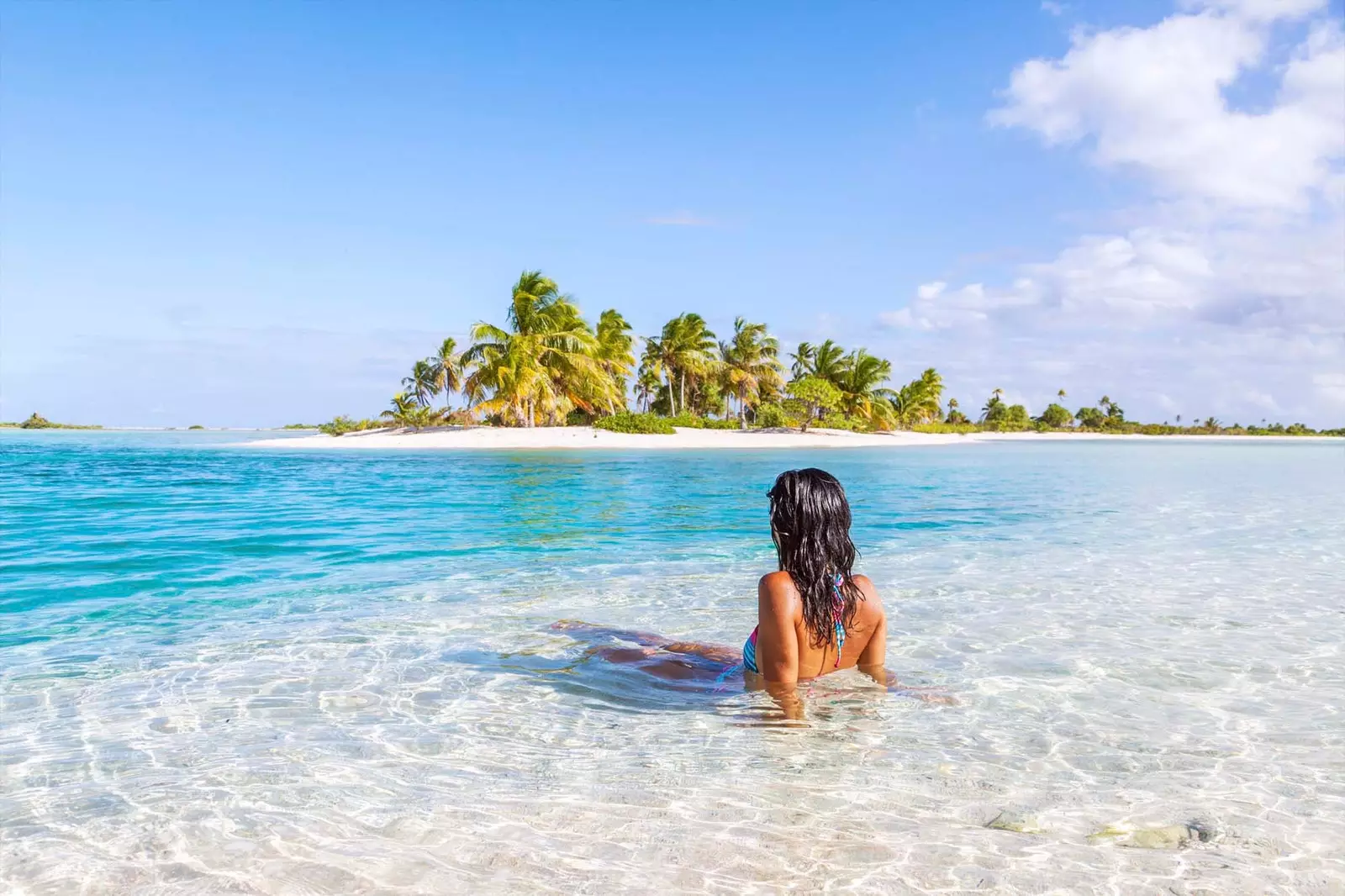
The "perfect photo" is not always real
Manuel sums it up this way: “In the end, the brutal marketing to which we are subjected makes us want things that we don't even need and, really, we don't want many times. And, if we don't do them, we feel that 'we are missing something ’”.
To avoid adding to that feeling, there are travel bloggers like Tom Stevenson , who are beginning to explain the truth behind the warm-toned photo of all those nomads who are living what seems to be the best possible life: they quit their jobs, they sell everything, they embark on an endless journey around the world that turns out to be especially instagrammable if you go to tag partner #vanlife .
“Without the safety net of living at home, you have to fend for yourself at all times. It can be hard to stay afloat during tough times, especially if you're alone in a new place. Can be a lonely experience ”, he writes on Medium.
“ Travel is excessively mythologized these days ; As a travel blogger, I plead guilty to it. I urge people to follow their dreams and travel. But the reality is that long-term travel is not for everyone. Many people would collapse under the pressure of being constantly on the road, in a state of flux. In the same way that stability is not for everyone, neither is constant change. And life as a traveler is a cycle of changes.
The traveler elaborates on that idea, assuring that the worst change of all is knowing that you will never be the same again. “You have experienced and seen too much to return to your pre-journey life. By committing to travel full-time, you also commit to never being satisfied . You will never be satisfied living in one place. You will never be satisfied until you have traveled everywhere. You will never be satisfied, even if you meet the love of your life. You will always need more! It's like a disease that takes hold of you and doesn't let go. It's terminal,” he recounts.

Road, blanket and instrument, the most suggestive nomadic combination
THE IMPOSSIBILITY OF DOING NOTHING
This never conforming is one of the evils attributed to capitalism. This is how Alexandra, a journalist, sees it: “I think that all this constant traveling is part of the most absolute capitalism, which leads to globalization and the destruction of the planet. In addition, you annoy the people who live in the place you are traveling to (and you contribute to boosting the economy based on tourism, which is rubbish). On the other hand, there is this whole neoliberal thing that you have to learn many languages, travel a lot and get up at four in the morning to run a marathon before going to work. Solution: laziness or rebelling by doing NOTHING, but really ”, she sentences.
But can that purpose be fulfilled in the 21st century? “I'm taking vacation soon, and I don't feel like doing anything. Well, I'm going to Malaga because I felt bad going to town, to a flat that my parents have in Valencia, to... do nothing. Have we been made to feel guilty if we do nothing? ”, asks María, also a journalist. "Is that you take a hobby when traveling, because, in the end, you walk with more obligations than in your day to day ”, She completes her.
This idea also beats in Sabina's story, an ode to a not very praised facet of tourism: business trips. “What made me tired of tourism and leisure trips was precisely what was firmly established in business trips: survival, getting to a place where no one is waiting for you, the lack of a clear mission, apart from wandering around watching in a daze.”
The writer explains it to us a little more: “That business of traveling as if forced to do the same 15 things that everyone else has done scares me. For me, traveling is spending a lot of time in one place, or going to a place with a specific mission. I forget the rest of the trips, they are confusing, I don't remember the names of anything”. But -we asked him-: traveling is remembering names... or living an experience? "Experience," she replies. "But I think that we are going to mark crosses on a list ”.
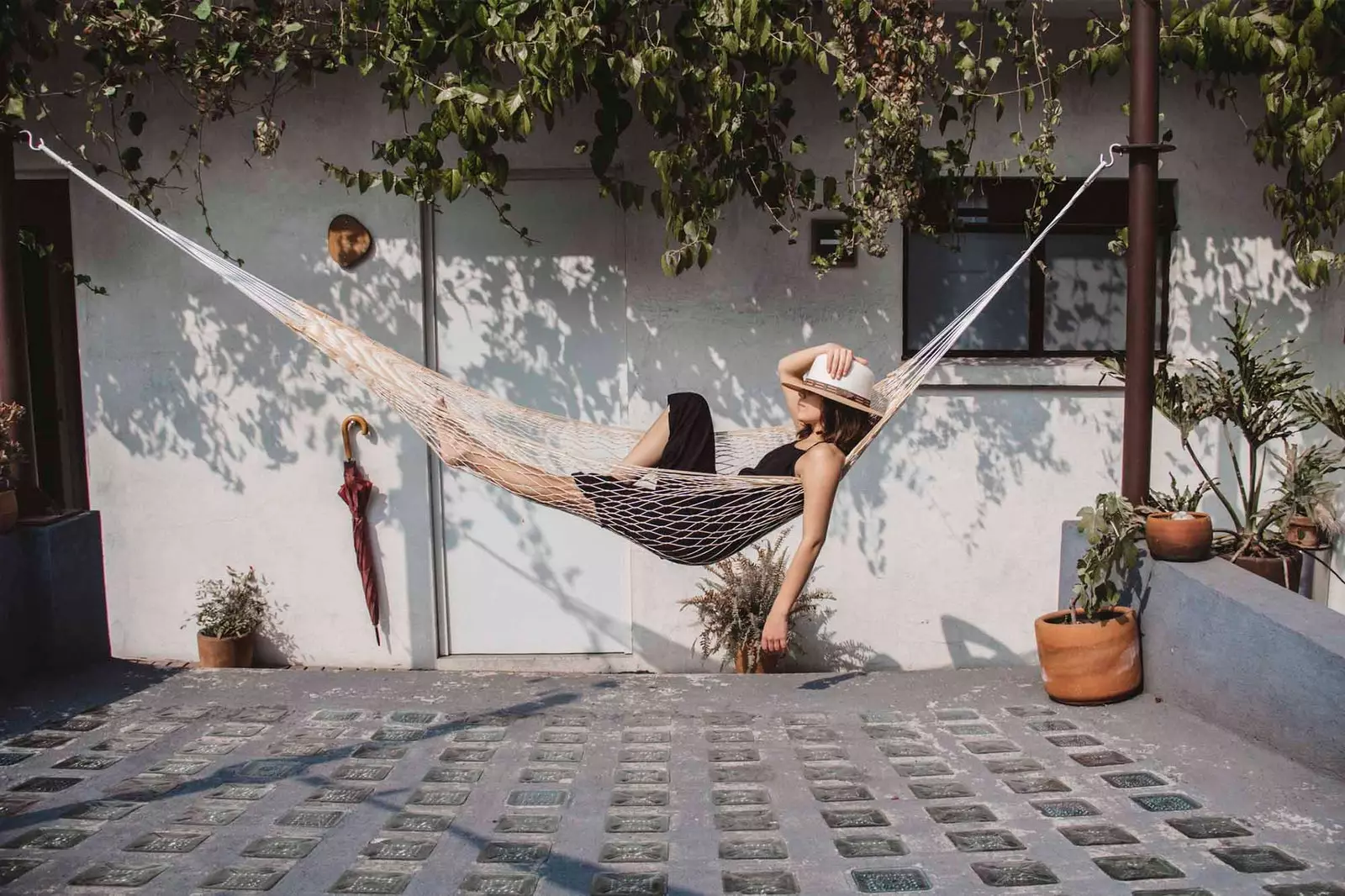
"Doing Nothing" Seems Impossible
María also includes work in the equation, but not to talk about business tourism, but about the M multiple tasks that we carry out ourselves at the destination , which are also the ones that largely repel Sabina. “Work is increasingly present in our leisure time. I mean: you are going to do the shopping and now you even have to charge yourself, weigh the fruit, etc ”, she observes.
In fact, ever since the internet has become our travel agent, we have to do it all by ourselves , from stressing ourselves trying to choose the best flight fares to hiring our own rental car, driving it and constantly looking at the GPS to follow a route previously plotted by - guess who? - ourselves.
José, a scientist whom we also interviewed, goes a step further in this idea of the fusion between the time we dedicate to work and relaxation, ensuring that on vacation he cannot afford to stay home because he knows he would end up working.
María also contemplates this nuance, although from another perspective: “You are working all day so that the holidays arrive and you cannot rest, because how can you be in Indonesia and not leave the hotel room! The labor self-exploitation that has been talked about lately seems to have also reached the personal level,” he maintains.
“I very much agree with what Alejandra says about doing nothing,” she adds. “I think we are not going to end this infamous system, that it will take generations to reconsider, if it happens, but, right now, the most revolutionary thing that can be done is not to consume , or consume the minimum.
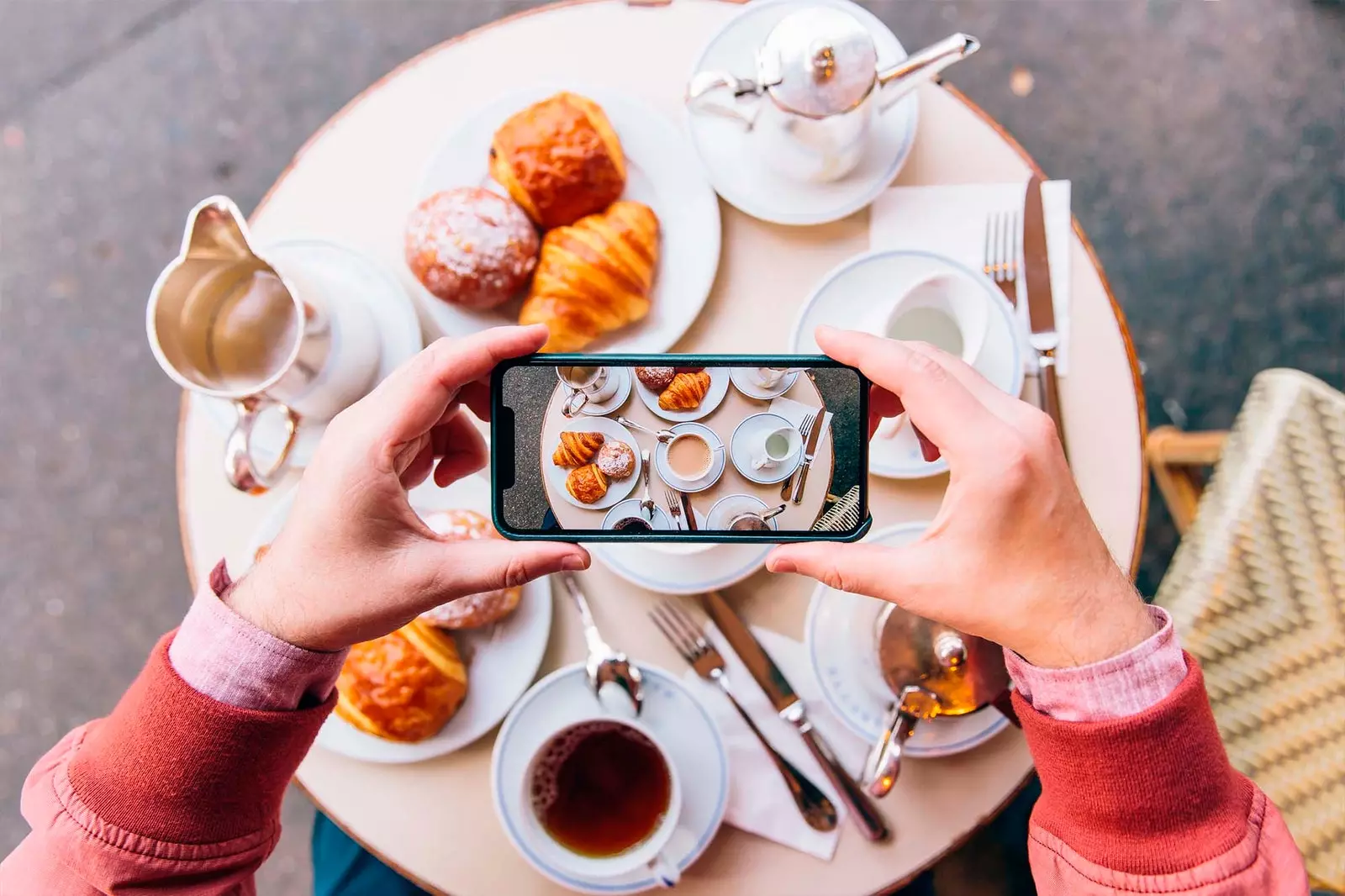
"The most revolutionary thing that can be done is not to consume"
THE TYRANNY OF EXPERIENCES
"The travel and tourism industry has established itself as a benchmark for growth worldwide," admits Korstanje. “However, there are many people who, for economic reasons, conflicts, or other weighty issues, cannot travel. In this sense, mobility has become a sign of status, but at the same time, it has become almost a right”, affirms the expert, who comments that this gap between those who travel and those who do not is a topic that is included in the ethical debates on tourism.
In this way, to the social pressure derived from not being able to travel and wanting to do so, is added that of not wanting to travel and having to do it almost "out of obligation" to be socially accepted , or by feeling, as noted above, that one is not "missing" anything.
It is extracted, for example, from the words of Alejandro, a social educator: "The last trip I started with great enthusiasm, in plan 'finally I feel like a trip'. When he was in Sicily, he thought: 'What the hell, luckily next week it's Scandinavia', and when he was there, he only thought about going back, about how much I like my house and how done I am on my own without the stress of having to relocate to a new context.”
After the journey, Alejandro decided that he would not travel again for a good season, but he lived it without traumas: in his opinion, it is simply about processes: “ Sometimes, there is a certain nomadic need, and sometimes, what is sought is something more sedentary . Or that's how I live it."
But not everyone takes it with the same philosophy. There are many who, when they return home, join the post vacation depression . And that's where our anxiety about the much-thumbed "living experiences" also comes into play.
“The post-holiday syndrome occurs because the expectations of traveling and experiencing unique moments -to combat the routine- are so high that, when they end, people experience states of confusion, depression, insomnia, and even they usually get divorced ", concludes Korstanje. This would give for a new reflection, about why we are compelled to travel to experience those "great moments" that have no place in our day to day life. But that will be another article.
